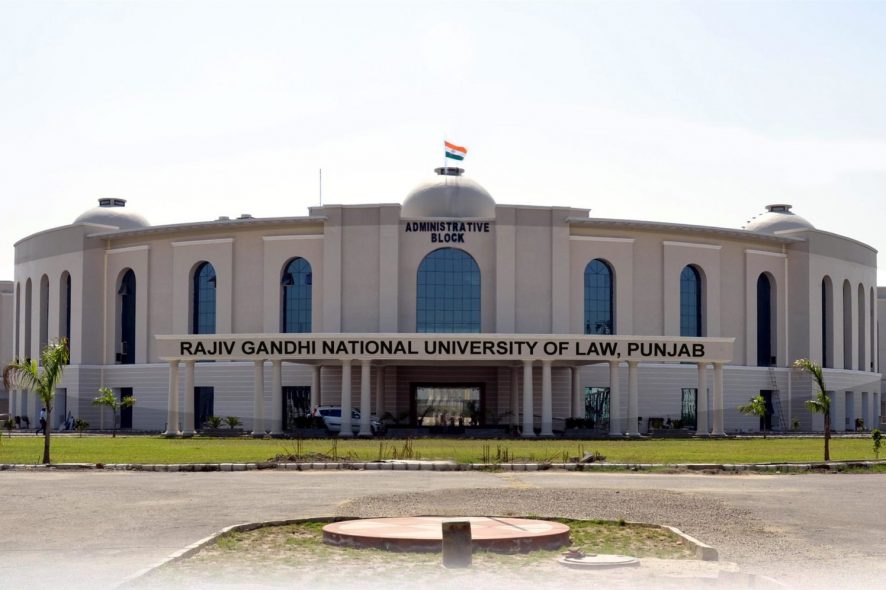About CBLT
Centre for Business Laws and Taxation, RGNUL has been established with a view to promote interdisciplinary research on Business Laws and Taxation. The Centre aims to engage in diverse activities including, but not limited to, organizing Webinars, Conferences, Workshops, and Moot Court Competitions; initiating credit and non-credit Courses; publishing Newsletters and Blog Series; engaging in meaningful research on business laws and taxation etc. The Centre would also indulge in formulating policies in a prescriptive sense and providing internships to various students of law in the field of research and development. For this purpose, the Centre aims to collaborate with other stakeholders and institutions for continuous growth in the field of business laws and taxation. Centre aims to encourage multi-disciplinary study in the field of Business Law including, but not limited to, General Corporate Governance, Banking Law, Company Law, Securities Law, Intellectual Property Laws, Taxation Law, Insolvency and Bankruptcy Laws, Competitions Laws, Mergers and Acquisitions and Dispute Resolution. The Centre aims to establish an effective venue for discussion and dialogue on contemporary issues in Business law and Taxation to generate awareness and facilitate research in this field.
About the Conference
The ability of the machine to analyze like a human brain, think, perceive, decide and solve problems, termed as artificial intelligence (AI), is increasingly used for strategizing and decision making. From fictional reality to virtual reality, AI has made rapid strides AI has made its mark in myriad ways. Advancements in data collection, processing and computational power have propelled AI systems which can be deployed in multifarious disciplines for performing myriad tasks viz., robotic surgeries, voice recognition software, use of robots for service provision, chatbots for customer care, language translation, drone and AI led warfare, facial recognition tools, autonomous vehicles using automatic driving sensors etc. AI, propelled by data, is increasingly employed in day-to-day activities. The advancements in AI and its adoption can be judged from the fact that the humanoid robot Sophia was granted full citizenship by Saudi Arabia. AI, thus, has the potential to have a positive impact on various sectors like healthcare, the legal profession, education, agriculture, smart and efficient energy, transportation etc. However, the technology is still at the nascent stage and deployment of AI is confronted with multiple hindrances like lack of efficient ecosystem for working of the technology, lack of expertise, high cost and lack of legal regulation of AI. Furthermore, AI has posed several serious challenges, including but not limited to, data privacy and data protection; malicious use of AI; use of lethal autonomous weapon systems; ethics and AI; liability regime for AI, issues relating to Intellectual Property Rights etc. In this backdrop, law can-not remain aloof from such technological advancements. Therefore, countries across the globe are considering legal regimes for the regulation of AI. Many countries have enacted or are in the process of enacting laws for the regulation of various aspects of AI viz. data protection and data privacy, autonomous vehicles, facial recognition etc. However, none of the countries across the globe has been able to delineate the liability regime for AI. Keeping in view the adoption of AI in various sectors and its huge potential, governments of all countries are making efforts to adopt a policy framework for regulating the use of AI. In this backdrop, the Government of India mandated NITI Aayog to formulate National Strategy for Artificial Intelligence.
Themes of the Conference
-
AI and Lethal Autonomous Weapon Systems: International Humanitarian Law Perspectives
-
Big Data and its regulation
-
AI, Healthcare and Legal Liability
-
AI, Data Privacy, Data Protection and Law
-
AI systems for Legal Professionals AI in Education
-
XAI and Law
-
AI, Forensic Criminalistics and Criminal Justice System
-
AI and Jurisdictional Issues
-
AI and IPRs
Abstract / Proposal Submission: 10 September 2022
Acceptance / Rejection Notification: 20 September 2022
Last date of Registration: 30 September 2022
Full Paper Submission: 25 October 2022
Date of the Event: November 11-12, 2022
Paper Submission Guidelines
-
The research papers should pertain to any of the sub-themes of the conference.
-
Participants shall be required to submit an abstract of around 350 words on or before 10th September 2022.
-
The abstract shall also contain the name and email id of the author/s, contact number and designation.
-
Acceptance of abstract will be communicated within 15 days after submission. The payment link will be shared separately if the abstract is selected.
-
The full paper should not exceed 6000 words. It shall be typed in Times New Roman, Font Size 12 on A4 size paper with 1” margin on all sides with 1.5 line ª spacing using MS Word.
-
Abstract and Research Papers should be emailed to cbltevents@rgnul.ac.in
-
Citations shall be strictly in accordance with the Bluebook (20th Edition).
-
University may publish accepted papers. Publication of papers shall be the exclusive discretion of the University.
Registration Fees:
-
Students and Researchers: INR 800
-
Academicians: INR 1000
-
Co-authors: INR 1500 (A maximum of 2 authors are permitted per paper)
-
Conference Participation Fee: INR 500
For queries, please contact the undersigned.
Avishikta Chattopadhyay (+91) 9800960982
Yashvi Jain(+91) 9079274403
For more details: Brochure







